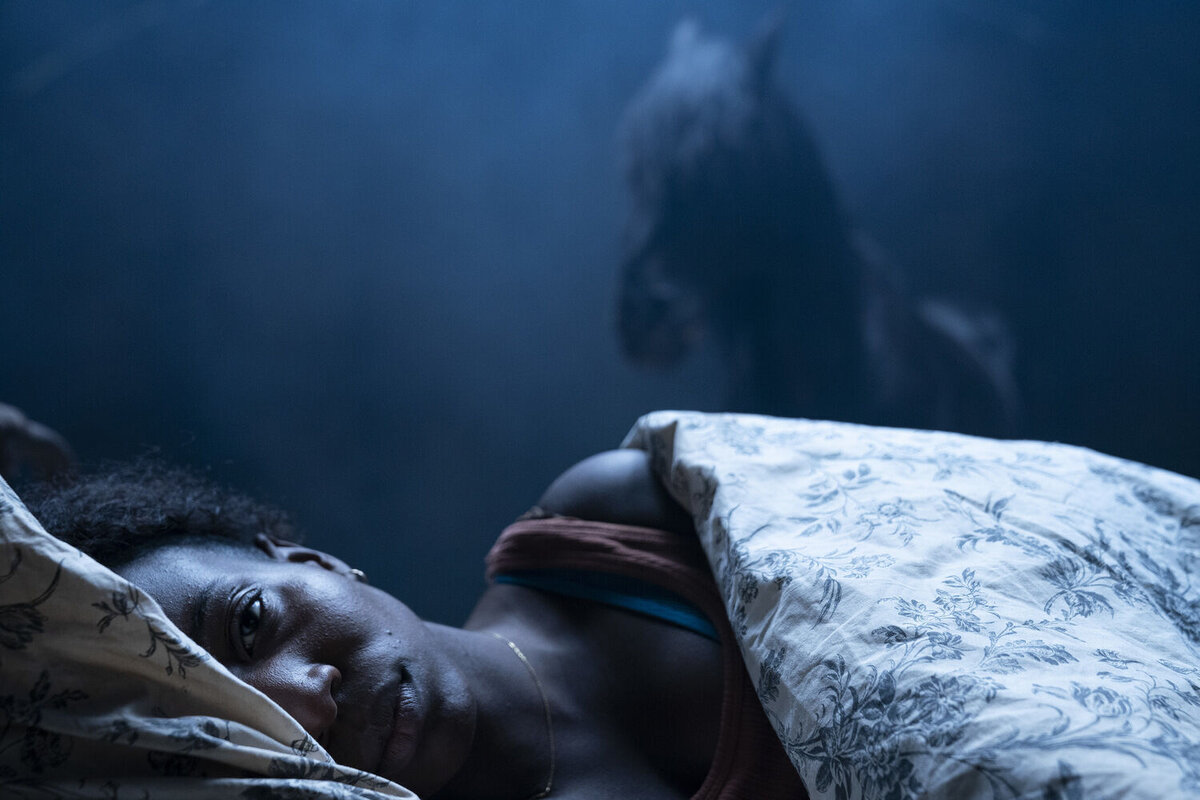«Kindred» - Movie Review by Kinoafisha

A young woman becomes the victim of a family she despises, with an unborn child she never wanted.
The physical and psychological vulnerability of a pregnant woman has been exploited numerous times in cinema, particularly in horror films. The most obvious example is "Rosemary's Baby", and for those in the know, "Hush", where Jessica Lange and Gwyneth Paltrow respectively portrayed women obsessed with their unborn sons and future grandsons. Joseph Marcantonio also took on this theme in his first feature film "Kindred", for which he also had a hand in writing the screenplay. And, it must be said, he did so quite successfully, resulting in a film that seamlessly combines elements of psychological thriller and unconventional horror.
The grand plans of Charlotte (Tamara Lawrance) and Ben (Edward Holcroft), which included moving from the UK to Australia, are shattered after Ben tragically dies. Shortly before this, the couple learns of Charlotte's pregnancy, and although she was less than thrilled by the news, she decides to keep the child. Ben's mother Margaret (Fiona Shaw) and his half-brother Thomas (Jack Lowden) supposedly offer Charlotte the chance to stay in the family estate at least until the baby is born, seemingly out of good intentions. However, Charlotte is well aware that Ben couldn't stand his family, and so she has no intention of giving up their once-shared plans of relocation. Gradually, Charlotte begins to feel that she has transformed from a guest in the mansion into its hostage, desperately trying to escape.
"Kindred" is filled with numerous allusions, not only to cinema and literature but also to current news topics. In addition to the aforementioned "Rosemary's Baby" and "Hush", the film clearly references Jordan Peele's "Get Out". However, while Peele focuses on the theme of racial inequality, Marcantonio is more interested in the clash of ideologies between old England with its formality and allegiance to traditions as the ultimate good, and new England - liberal and, if not entirely breaking away, distancing itself from these very traditions. On one hand, there is restrained Margaret, almost always sporting a fake smile, speaking to everyone in a condescending manner and cherishing the family, albeit more as a social institution than a close-knit group of people. On the other hand, there's free-spirited Charlotte, unaccustomed to hiding her emotions and disbelieving in marriage and everything that should follow, according to people like Margaret. Their conflict is reminiscent of the ongoing disputes within the British royal family involving Meghan Markle, albeit on the scale of one family (with a history spanning nine generations, according to Margaret). According to the filmmakers, Charlotte's racial background was not explicitly written into the script and it was merely coincidental that this role was given to an actress of Jamaican descent. However, even if it truly was a coincidence, it is difficult to disregard this detail.
I must say, the acting trio of Shaw-Laurence-Lauden performed their roles absolutely brilliantly. Fiona Shaw embodies both a mourning mother and a cold-blooded matriarch, with glimpses of insanity shining through her rare bursts of anger. It is these episodes of fury, followed by her immediate recovery of composure, that impress the most in her performance. Tamara Lawrence convincingly portrays a person being convinced of their own madness: like any victim of gaslighting, she wants to believe in her own sanity, yet is not entirely free from doubts. Lawrence excels as a heroine, teetering between clarity of mind one moment and confusion due to memory lapses and strange dreams the next. Thomas, portrayed by Lauden, initially appears to be a straightforward character. Up until a certain point in the film, one may think of him as just a likable but weak-willed individual. However, in a scene where he seemingly confesses to Charlotte about a past crime, the actor's minimal actions and lines persuade the audience of his character's madness and possibly even sadism. To such an extent that he emanates a greater sense of danger than Margaret.
"Kindred" is a highly atmospheric film, and this is not solely due to the screenplay, direction, and cinematography, but also to the work of composers Jack Halama and Natalie Anne Holt, as well as all the artists involved. As soon as the characters step onto the estate's territory, it becomes clear that nothing good awaits them here. The once majestic mansion, seemingly standing for centuries, is now crumbling before our eyes – reminiscent of Edgar Allan Poe's "The Fall of the House of Usher." The abundance of crows in the film only reinforces the belief in its connection to classic Romantic literature. Throughout the house, withered flowers stand, dead insects lie on the windowsills, paint peels in every room, and textiles have long faded due to years of dust accumulation – a representation of decadence at its best. This spirit of decay, of which Charlotte becomes a victim, contrasts with the soundtrack featuring Debussy's "Clair de Lune," Bach's cello suites, and an instrumental version of "Dream a Little Dream of Me." Ultimately, even the main theme of gaslighting is interpreted through the film's soundtrack: on screen, we witness violence, but the music tries to convince us that it is only an illusion.
As a debut feature film, "Kindred" is impressive. Perhaps the film relies too frequently on imitating and referencing other works, but it's difficult to reproach Joseph Marcantonio for this, as many artists begin their creative journey through borrowing. It may not be horror in the traditional sense, as there are no jump scares and minimal blood, but rather a good old suspense with a multitude of cultural references. So, one could say that "Kindred" is a very intelligent horror film, where the somewhat predictable ending does not detract from the gradual buildup of tension that holds the audience's attention.